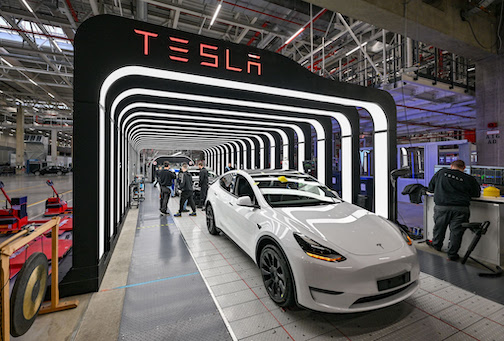What AI can do with e-car battery life – Researcher

Monika Wendel, dpa l Sunday, April 9, 2023
FRANKFURT – Researcher Ralf Herbrich believes that artificial intelligence (AI) will play a greater role in tackling climate change and e-mobility in the future.
The AI expert at the Hasso Plattner Institute in Potsdam just outside Berlin is working on ways to make electric car batteries last longer and improve the environmental balance.
AI also has great benefits for the environment and for living more sustainably, Herbrich told dpa in Potsdam.
AI-supported control systems should help batteries for electric cars or laptops to last longer.
Today, algorithms control the charging and discharging processes of individual battery cells to make the entire battery safe. In the future, however, these algorithms should also be able to extend the life of the entire battery by selectively distributing loads to individual battery cells, the computer scientist explained.
“They are very small computers running these programmes,” he said. With better battery longevity, he said, less mining of lithium would be needed in the end, and fewer new battery cells would have to be manufactured.
“That’s an exciting idea. There’s a lot of vision there,” the professor said in Potsdam.
He said it usually takes several years of research and the technology transfer process before the results are practically applicable. “Right now I’m working at the beginning of that process.”
The 48-year-old has been building up the AI and sustainability department at the Hasso Plattner Institute and the University of Potsdam since 2022. Previously, he worked for Microsoft, Facebook, Amazon and Zalando.
But artificial intelligence itself is also an energy guzzler. Large amounts of data are needed to train it and the energy consumption is high, explained Herbrich, who is researching more energy-efficient algorithms.
In the meantime, he said, there is no longer any doubt “that algorithms can see as well as humans, hear just as well and also write texts.”
The task now is to find out whether they can also do this with the same energy consumption as the human brain. At present, the ChatGPT text robot, for example, still requires many times more energy than the brain.

